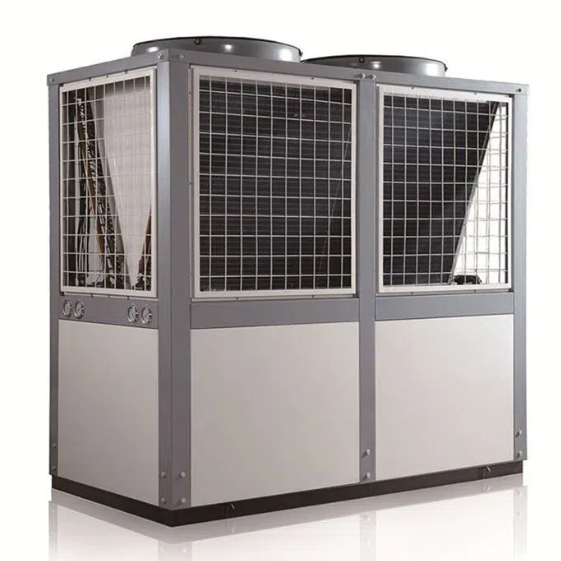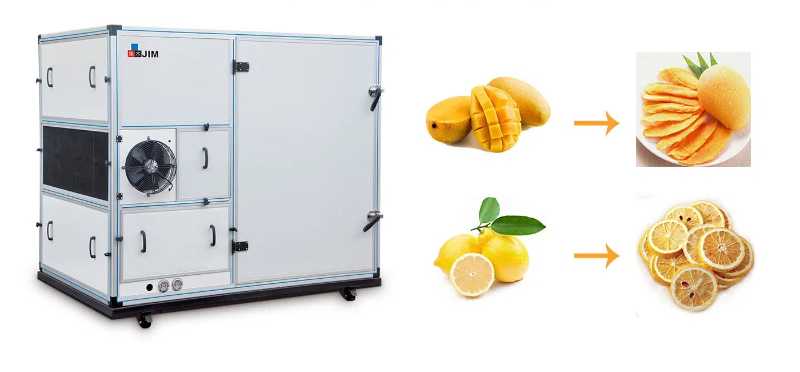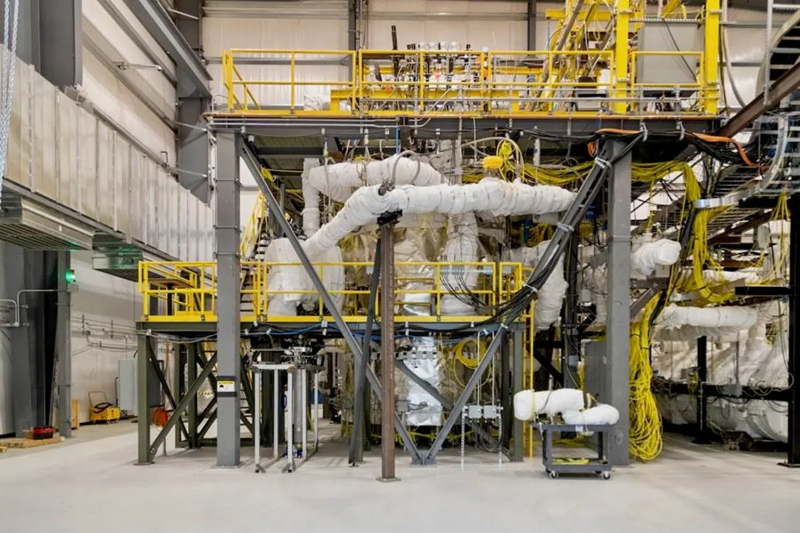
Content Menu
● Introduction to Heat Pump Food Dryer Technology
>> How Heat Pump Dryers Work
● Advantages of Heat Pump Food Dryer Factories
>> Energy Efficiency
>> Product Quality
>> Environmental Sustainability
>> Versatility
● Applications in the Food Industry
>> Fruit and Vegetable Processing
>> Meat and Seafood Preservation
>> Herb and Spice Production
● Technological Advancements in Heat Pump Food Dryer Factories
>> Smart Control Systems
>> Hybrid Systems
>> Continuous Flow Systems
● Economic Impact of Heat Pump Food Dryer Factories
>> Reduced Operating Costs
>> Increased Product Value
>> Market Expansion
● Challenges and Future Developments
>> Initial Investment Costs
>> Scaling Up Production
>> Ongoing Research and Development
● Case Studies: Successful Implementation of Heat Pump Food Dryer Factories
>> Case Study 1: Fruit Snack Producer
>> Case Study 2: Herb and Spice Manufacturer
● The Global Impact of Heat Pump Food Dryer Factories
>> Reducing Food Waste
>> Improving Food Security
>> Supporting Sustainable Agriculture
● Conclusion
● Frequently Asked Questions
>> 1. Q: What are the main advantages of heat pump food dryer factories over traditional drying methods?
>> 2. Q: How do heat pump dryers contribute to sustainability in the food industry?
>> 3. Q: What types of food products can be processed in heat pump food dryer factories?
>> 4. Q: Are heat pump food dryer factories cost-effective for small-scale producers?
>> 5. Q: How does heat pump drying technology impact the nutritional value of food products?
Introduction to Heat Pump Food Dryer Technology
Heat pump food dryer factories are at the forefront of a technological revolution in the food processing industry. These innovative facilities utilize advanced heat pump technology to dehydrate and preserve a wide variety of food products, from fruits and vegetables to meats and seafood. The rise of heat pump food dryer factories represents a significant shift towards more energy-efficient, sustainable, and quality-focused food preservation methods.
How Heat Pump Dryers Work
Heat pump dryers operate on a closed-loop system that efficiently removes moisture from food products while maintaining low temperatures. This process involves several key components:
1. Evaporator: Cools the air and condenses moisture
2. Compressor: Pressurizes the refrigerant
3. Condenser: Heats the air for drying
4. Expansion valve: Regulates refrigerant flow
This system allows for precise control over temperature and humidity, resulting in superior product quality and energy efficiency compared to traditional drying methods.

Advantages of Heat Pump Food Dryer Factories
Energy Efficiency
One of the primary benefits of heat pump food dryer factories is their exceptional energy efficiency. These systems can recover and reuse up to 60-80% of the energy used in the drying process, significantly reducing overall energy consumption compared to conventional drying methods.
Product Quality
Heat pump dryers operate at lower temperatures than traditional dryers, typically between 35-65°C. This gentle drying process helps preserve the nutritional value, color, flavor, and texture of food products, resulting in higher quality dried foods.
Environmental Sustainability
By reducing energy consumption and eliminating the need for fossil fuels, heat pump food dryer factories contribute to a more sustainable food processing industry. This aligns with growing consumer demand for environmentally friendly products and production methods.
Versatility
Heat pump dryers can be used to process a wide range of food products, including:
- Fruits (apples, bananas, berries)
- Vegetables (carrots, onions, peppers)
- Herbs and spices
- Meat and fish
- Dairy products
This versatility makes heat pump food dryer factories adaptable to various market demands and seasonal produce availability.
Applications in the Food Industry
Fruit and Vegetable Processing
Heat pump food dryer factories are particularly well-suited for processing fruits and vegetables. The low-temperature drying preserves the natural flavors, colors, and nutrients of produce, resulting in high-quality dried snacks and ingredients.
Meat and Seafood Preservation
For meat and seafood products, heat pump dryers offer precise control over moisture content and temperature, crucial for producing safe and high-quality dried meats, jerky, and fish products.
Herb and Spice Production
The gentle drying process of heat pump technology is ideal for preserving the delicate flavors and aromatic compounds of herbs and spices, ensuring maximum quality and potency in the final product.

Technological Advancements in Heat Pump Food Dryer Factories
Smart Control Systems
Modern heat pump food dryer factories incorporate advanced control systems that allow for precise monitoring and adjustment of drying parameters. These smart systems can optimize energy usage, product quality, and production efficiency.
Hybrid Systems
Some factories are now implementing hybrid drying systems that combine heat pump technology with other drying methods, such as solar or microwave drying. These hybrid approaches can further enhance energy efficiency and drying capabilities.
Continuous Flow Systems
Continuous flow heat pump dryers are being developed to increase production capacity and efficiency in large-scale operations. These systems allow for uninterrupted drying of food products, reducing processing time and labor costs.
Economic Impact of Heat Pump Food Dryer Factories
The adoption of heat pump technology in food drying factories has significant economic implications for the industry:
Reduced Operating Costs
The high energy efficiency of heat pump dryers translates to lower operating costs for factories, improving profit margins and competitiveness.
Increased Product Value
The superior quality of products dried using heat pump technology often commands higher market prices, contributing to increased revenue for producers.
Market Expansion
The ability to produce high-quality dried foods opens up new market opportunities, both domestically and internationally, for heat pump food dryer factories.
Challenges and Future Developments
While heat pump food dryer factories offer numerous advantages, there are still challenges to overcome:
Initial Investment Costs
The upfront costs of installing heat pump drying systems can be higher than traditional drying equipment, which may deter some smaller producers.
Scaling Up Production
As demand for dried food products grows, factories need to find ways to scale up production while maintaining energy efficiency and product quality.
Ongoing Research and Development
Continued research is needed to further improve heat pump technology, explore new applications, and develop more efficient and cost-effective systems.
Case Studies: Successful Implementation of Heat Pump Food Dryer Factories
Case Study 1: Fruit Snack Producer
A leading fruit snack producer in California implemented a large-scale heat pump drying system in their factory, resulting in a 40% reduction in energy costs and a 25% increase in production capacity. The improved product quality also led to expanded market share in the competitive healthy snack sector.
Case Study 2: Herb and Spice Manufacturer
An herb and spice manufacturer in Europe transitioned to heat pump drying technology, achieving a 50% reduction in drying time and a significant improvement in the retention of essential oils in their products. This led to increased customer satisfaction and a 30% growth in export sales.
The Global Impact of Heat Pump Food Dryer Factories
The adoption of heat pump technology in food drying factories is having a global impact on the food industry:
Reducing Food Waste
By providing an efficient means of preserving surplus produce, heat pump food dryer factories are playing a crucial role in reducing food waste, particularly in regions with limited cold storage infrastructure.
Improving Food Security
The ability to efficiently dry and preserve food products contributes to improved food security by extending the shelf life of nutritious foods and making them available year-round.
Supporting Sustainable Agriculture
Heat pump food dryer factories enable farmers and producers to add value to their crops, supporting sustainable agricultural practices and rural economies.
Conclusion
Heat pump food dryer factories represent a significant advancement in food processing technology, offering numerous benefits in terms of energy efficiency, product quality, and sustainability. As the technology continues to evolve and become more widely adopted, it has the potential to transform the global food industry, contributing to reduced energy consumption, improved food security, and the production of high-quality dried food products.
The future of heat pump food dryer factories looks promising, with ongoing research and development aimed at further improving efficiency, scalability, and versatility. As consumers increasingly demand healthier, more sustainable food options, heat pump drying technology is well-positioned to meet these needs while providing economic benefits to producers and processors.

Frequently Asked Questions
1. Q: What are the main advantages of heat pump food dryer factories over traditional drying methods?
A: Heat pump food dryer factories offer superior energy efficiency, better product quality due to low-temperature drying, increased sustainability, and versatility in processing various food products.
2. Q: How do heat pump dryers contribute to sustainability in the food industry?
A: Heat pump dryers reduce energy consumption, eliminate the need for fossil fuels, and help preserve food that might otherwise go to waste, all contributing to a more sustainable food production system.
3. Q: What types of food products can be processed in heat pump food dryer factories?
A: Heat pump dryers can process a wide range of foods, including fruits, vegetables, herbs, spices, meats, seafood, and dairy products.
4. Q: Are heat pump food dryer factories cost-effective for small-scale producers?
A: While the initial investment can be higher, the long-term energy savings and improved product quality often make heat pump dryers cost-effective even for smaller producers. However, the specific return on investment will depend on factors such as production volume and energy costs.
5. Q: How does heat pump drying technology impact the nutritional value of food products?
A: Heat pump drying typically preserves more nutrients compared to traditional high-temperature drying methods, as the lower drying temperatures help retain heat-sensitive vitamins and phytochemicals in the food products.












